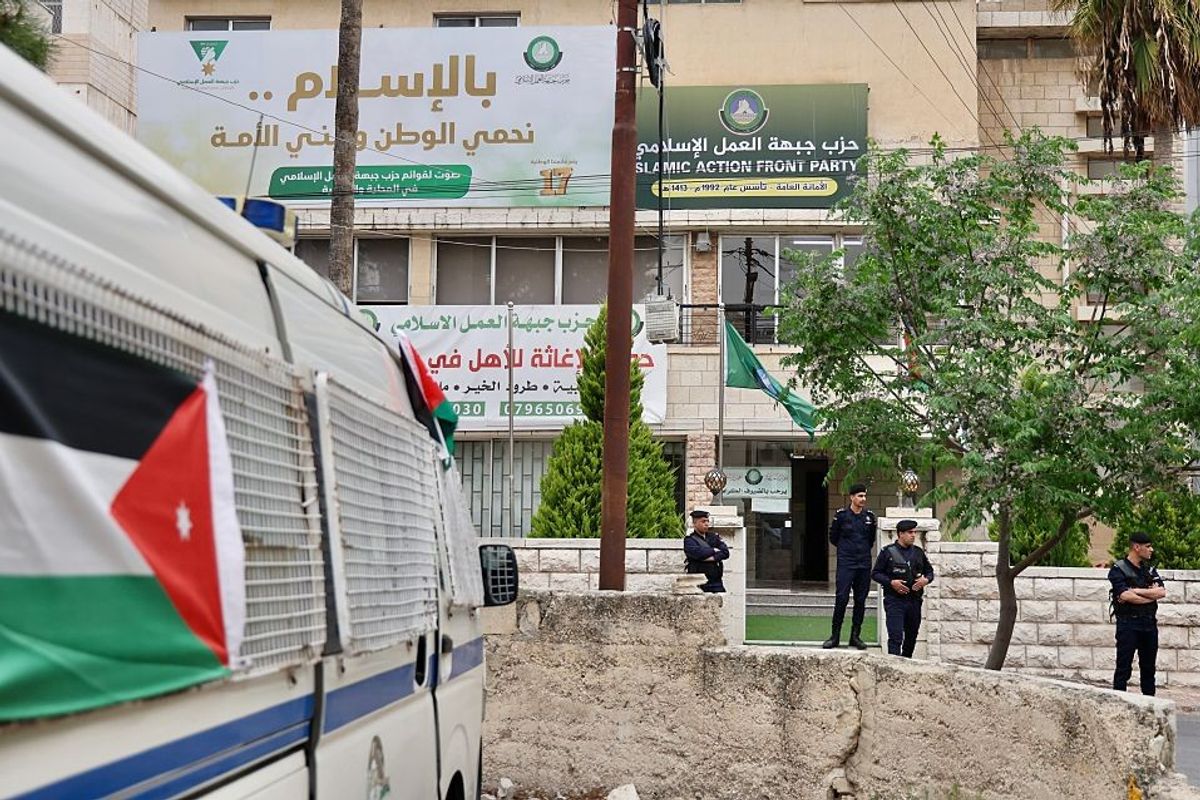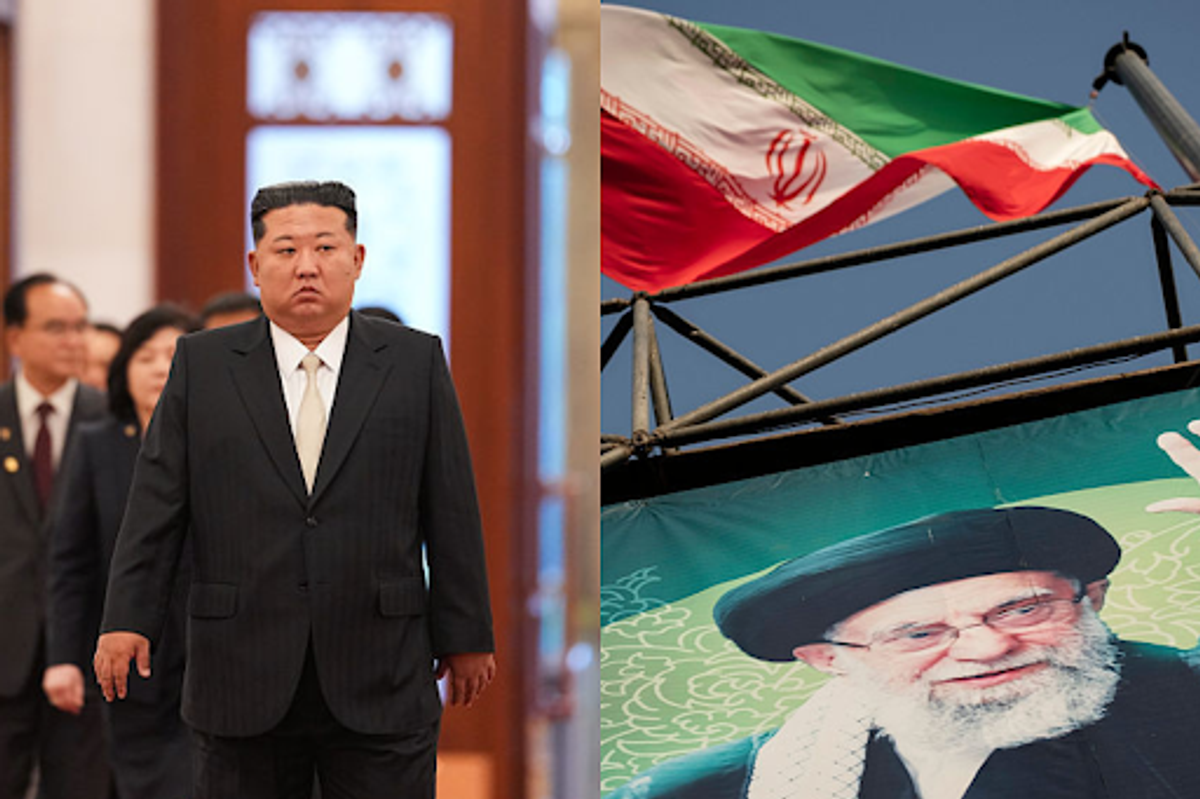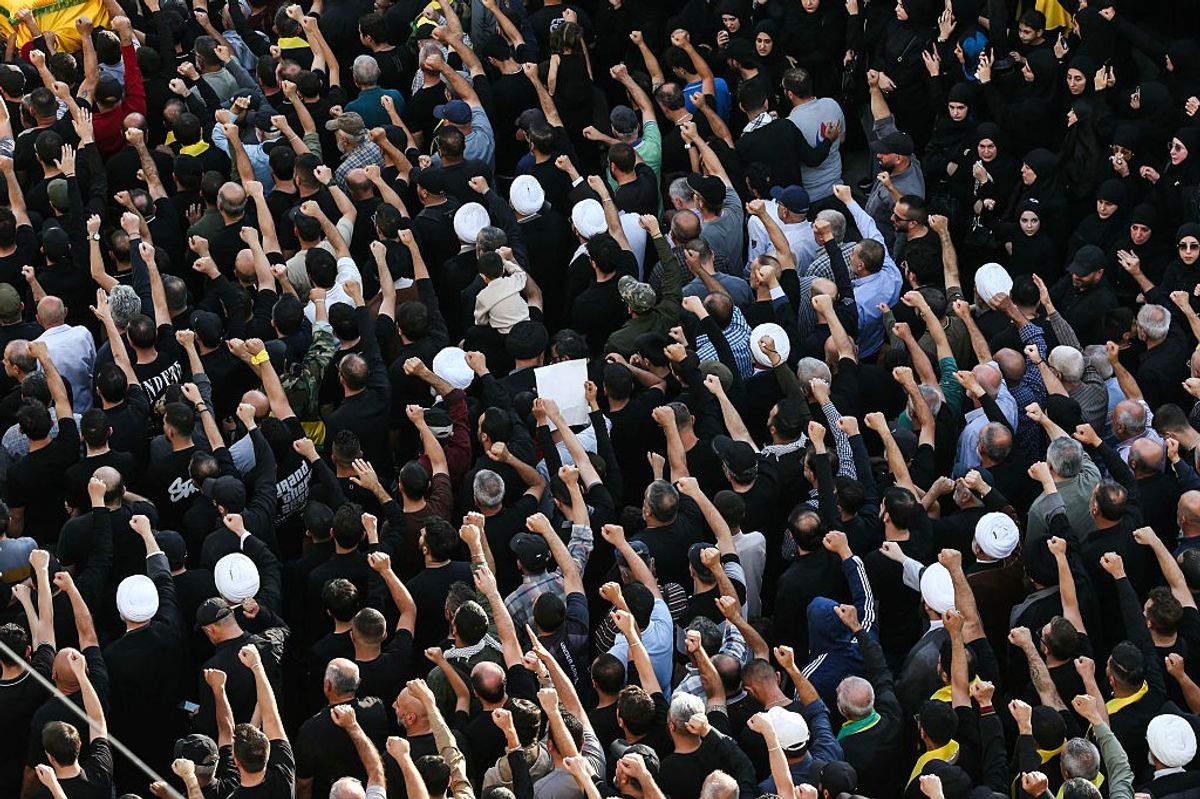OPINION — As the Israeli assault on Gaza passes the 13-month mark, and as Hezbollah reels under the massive Israeli bombing campaign on its leaders and operational centers in Lebanon, it has become clear that militant political Islam has run out of steam. Concurrently, Iran’s defense strategic doctrine has been deprived of a major component; namely, its “proxy” militia groups.
As a U.S. government senior analyst, I followed political Islam and Islamic activism, beginning in the early 1990s. Now nearly 30 years later, it’s safe to judge with confidence that if this phenomenon is to survive, leaders of Islamic parties must jettison violence and militancy and return to participatory politics.
Israel’s recent military successes against Hamas and Hezbollah might give the government of Benjamin Netanyahu cause for celebration. But because of his refusal or unwillingness to address the root causes that helped create Islamic political parties and movements in Palestine, Lebanon, and elsewhere, Israeli successes in war could prove no more than a Pyrrhic victory.
Furthermore, the killing of well over 43,000 Palestinians in Gaza and several thousand more people in the West Bank and Lebanon cannot and must not be justified by Israel’s spurious claims that the carnage has been inadvertently caused by the targeting of “terrorists.” The massive destruction of Gaza and parts of Lebanon gives the impression that the Israeli military views Palestinian and Lebanese civilians as legitimate targets because of Hamas' and Hezbollah's attacks on Israel.
Yet, despite the assassinations and the destruction in Gaza, the West Bank, southern Lebanon and Beirut’s southern suburbs since October 7, 2023, Hamas and Hezbollah continue to exist, clearly not as strong military forces as they were before the last year’s conflicts, but as an idea representing their peoples’ political aspirations. If that’s the case, where does political Islam go from here? A brief history might help answer this question.
The phenomenon of political Islam and Islamization has manifested itself in the past three decades through at least three different interpretations of the Muslim faith, with varying degrees of operational durability and reach: a radical interpretation; mainstream political mobilization by Islamic movements; and country-specific, single-issue political movements.
Radical Political Islam
Since the early 1990s, Islamic radicalism has been more closely identified with the Saudi-based Salafi Wahhabi doctrine, which was developed in the 18th century by the famed Arabian Peninsula theologian Muhammad Ibn Abd al-Wahhab. Salafi Wahhabi Islam, which until recent years has been the hallmark of the Saudi state, advocates jihad in all its forms against the perceived enemies of their brand of Islam.
Unlike the other three schools of jurisprudence in Sunni Islam, the Hanbali-based Salafi Wahhabism considers jihad a central tenet of Islam. It has also pursued proselytization, or da’wa, to propagate the Salafi Wahhabi doctrine across the world. Whereas the concept of jihad in the other schools is mostly a personal, peaceful effort to make one a better Muslim, in Salafi Wahhabism it can be a religiously justifiable violent act against perceived infidels, states and individuals alike.
The Taliban, al-Qaeda, ISIS, ISIS-K, and their affiliated groups have represented the most violent expression of Salafi Wahhabism. They have committed countless acts of terrorism against their perceived enemies across the globe. Saudi and other Salafi Wahhabi radicals in the 1990s viewed the United States as part of “Dar al-Harb” or the abode of war, which made it a justifiable target. Osama bin Laden underscored this claim a month after 9/11. More than two decades later, the victims of the 9/11 attacks have yet to reach a closure in their quest for justice and accountability.
The threat of this radical paradigm, although still present in some corners of the Muslim world, has all but dissipated, and the scourge of global Islamic jihad has faded.
Mainstream Sunni political Islam
The establishment of the Muslim Brotherhood (MB) in Egypt in 1928 was the forerunner of political Islam globally. While ostensibly created to combat the pro-British monarchy in Egypt, the MB’s primary mission was to transform the Egyptian society into a more ethical Muslim polity.
The group’s slogan, for nearly a century, has always been “Islam is a faith, a society, and a state” or as it’s known in Arabic, “Al-Islam Din, Dunya, Dawla.” The so-called three Ds in the MB identity became an organizing principle for other Islamic parties throughout the Muslim world. As a result, Islamic parties embedded in MB ideology were formed in Syria, Jordan, Palestine, Morocco, Tunisia, Kuwait, Indonesia, Malaysia, Turkey, Kenya, Uzbekistan, and elsewhere. Although these parties are connected to the MB ideologically, they were not connected to it organizationally and operationally.
In terms of political mobilization, the MB and its affiliated parties supported gradual political change where free elections were permitted. With a few exceptions, mainstream Islamic political parties participated in national elections and accepted the election results peacefully. Where some of these parties were banned from participating in national elections, they ran “independent” candidates with no overt party affiliations. Most of these parties shunned violence and strove to change their societies from below through civic mobilization.
I interacted with many of these parties during my government career and frequently briefed policymakers on their contributions to their societies, especially in the fields of education, health care, civil society activities, family hygiene, water resources, job creation, start-ups, and other areas. As examples of these activities in the 1980s and 1990s, the MB built and operated affordable networks of hospitals across Egypt, which primarily benefited the middle class. The Refah Party created an Islamic chamber of commerce, which supported small businesses across Turkey. PAS in Malaysia established a high-quality but affordable school system and vocational training programs for their youth.
In response to the root causes of poverty, hunger, disease, unemployment, inadequate education and health services, and youth hopelessness, Islamic parties presented a political alternative to the strongman rule prevalent in most Muslim countries. Where they were allowed to participate in national elections in the 1980s and 1990s, they received relatively large numbers of votes, from Turkey to Egypt and Malaysia. Strongmen prevailed against these parties and ultimately curtailed their political activities severely and denied them the right to participate in future national elections. Consequently, the root causes continued to fester without tangible solutions.
Country-specific Islamic parties and movements
Hamas and Hezbollah, as prime examples of these parties, were established in response to specific situations in their countries — Israeli occupation of parts of Palestine and of south Lebanon. While the two parties are similar in their objectives, they differ in their religious orientation. Hamas is grounded in Muslim Brotherhood Sunni Islamic ideology, while Hezbollah adheres to the mainstream Twelver Shia doctrine of Islam.
Despite the tens of thousands of deaths among Hamas and Hezbollah in the current war with Israel, their leaders continue to insist that their “struggle” against Israel will continue until their nationalist goals are attained.
The way forward
Bread-and-butter concerns and job creation programs became the basis of the so-called Muslim engagement efforts of the U.S. government in the 1980s and 1990s, which were initiated in several Muslim countries, from Egypt to Uzbekistan and from Morocco to Bangladesh. Sadly, many of these programs were curtailed after 9/11 as the Bush administration shifted its resources to fund the global war on terror.
Successive American administrations have dealt with political Islam with varying degrees of success. They have rejected the radical paradigm and its violent jihad. However, Washington has engaged some of the mainstream Islamic parties through diplomacy by funding tangible social and economic programs and encouraging their democratic orientations – until October 7, that is.
As the region moves beyond the trauma of October 7, the incoming Trump administration should realize that unless the root causes are addressed and Muslim youth can envision a hopeful future, Muslim countries, including America’s strongest allies, will continue to suffer from instability and chaos for years to come. And the U.S. itself could find itself under attack by radical groups and terrorist organizations.countries, including America’s strongest allies, will continue to suffer from instability and chaos for years to come. And the U.S. itself could find itself under attack by radical groups and terrorist organizations.
This opinion piece by Cipher Brief Expert Emile Nakhleh was first published by Responsible Statecraft
The Cipher Brief is committed to publishing a range of perspectives on national security issues submitted by deeply experienced national security professionals. Opinions expressed are those of the author and do not represent the views or opinions of The Cipher Brief.
Have a perspective to share based on your experience in the national security field? Send it to Editor@thecipherbrief.com for publication consideration.
Read more expert-driven national security insights, perspective and analysis in The Cipher Brief














